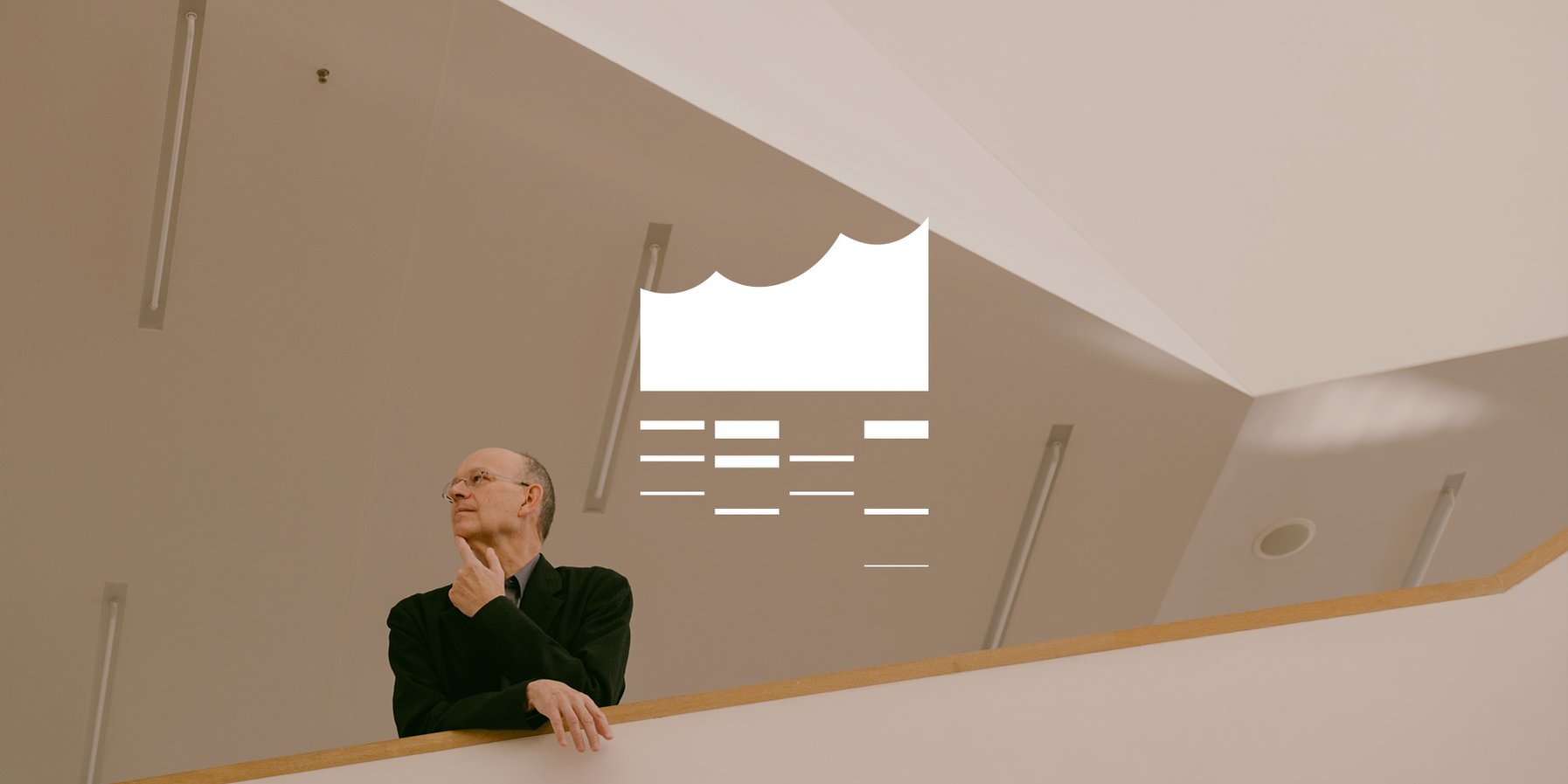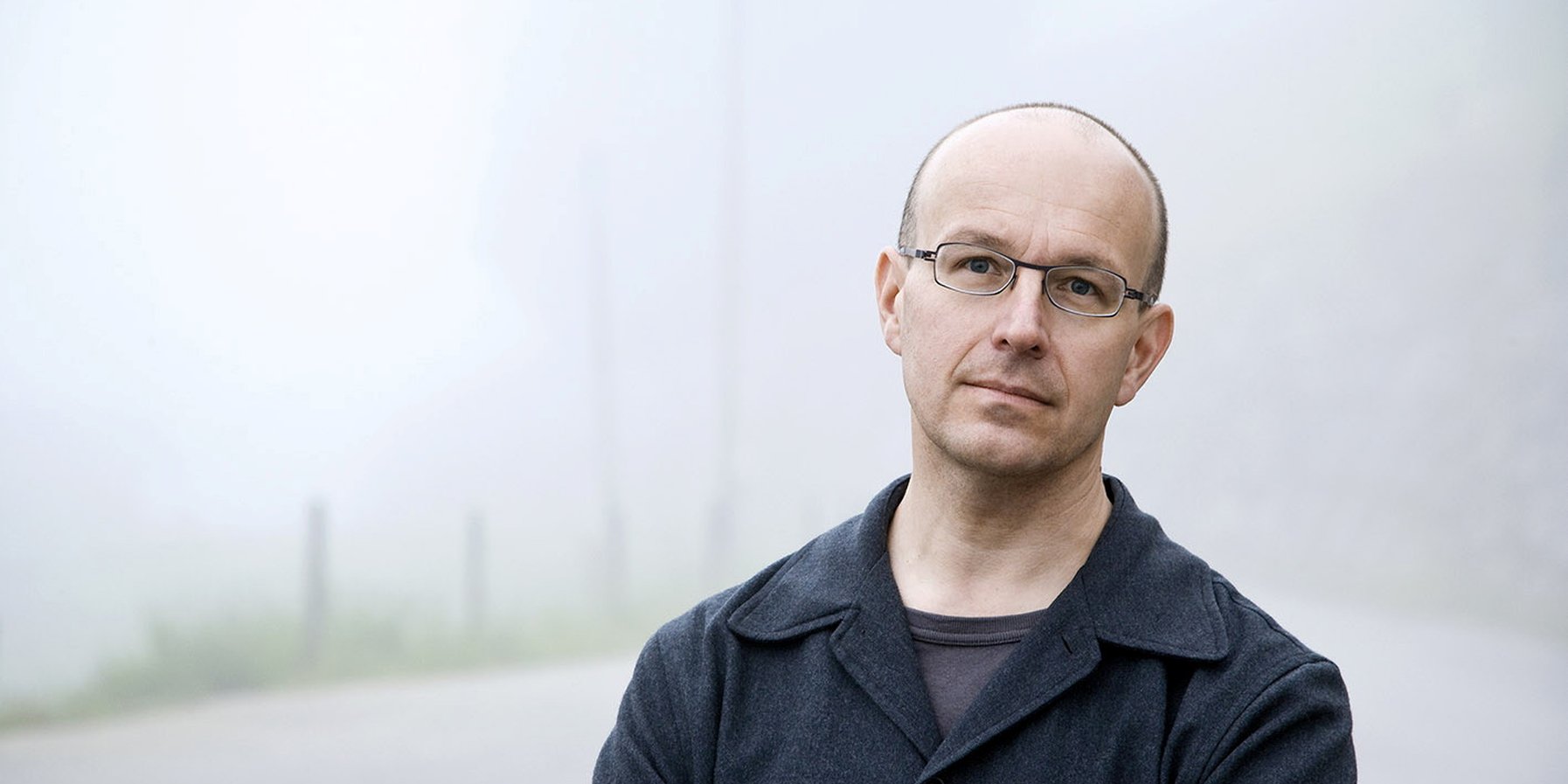»I'm not a composer,« Thomas Larcher says, »I'm really a sculptor«. There is an ironic undertone here – but what exactly does the man mean? Does he see his music as three-dimensional? The metaphor would be entirely justified: one work after another from his pen is vivid and thoroughly understandable. Or is he secretly working in a different artistic medium? Yes and no. »I write everything out by hand. Which means that there are loads of notes that I erase again. And I shape the crumbs from the rubber into little balls, probably a hundred in one day, enough to fill several bowls. These are my sculptures.«

This anecdote immerses us in the thinking of an artist personality who had to overcome much doubt and resistance to find his own voice. It wasn't long before several champions of avant-garde music suggested that he erase a lot of what he had put down on paper: especially tonal harmonies and melodies which represent a remembered past in his works, or promise a wondrous, newly-discovered future, or simply capture the beauty of the moment.
But in Larcher's case, this has nothing to do with any kind of »as if«, with ironic distance or polystylistic collages. Rather, he uses the opposing elements to imbue his music with enormous dramatic contrasts: contrasts in his works between tonality, atonality and noise-like events, between virtuoso escalations and grand gestures, can unleash thundery squalls – or waft in a hint of tenderness and sadness. What drives him is spontaneous, comprehensible expression, which he pursues with the utmost intellectual consequence and artistic honesty. Since he summoned up the courage to cast the rigid rules of »New Music« overboard, he only reaches for his eraser as he thinks fit. But he is still a perfectionist.
The myth of originality
Thomas Larcher has not completely forgotten the tonal force of gravity – or to be more exact: he doesn't behave as if one could and ought to forget it. Rather, he knows how to use it prudently in a fresh context. His sceptical attitude towards musical individuality plays a role here as well: »As if anyone could claim to compose utterly original music! The fact is, all of life consists of imitation. People want to be like X or like Y, and adopt things that then become their own. There is no such thing as indigenous, individual art.« Larcher, who was born in Innsbruck in 1963 and started his career as one of the most practised and versatile pianists of his generation, soon realised this much. »But the many works that I commissioned as a pianist also showed me that every composer deliberately tries to distance himself from others in order to find something that might be his own.«

Larcher questions this »myth of originality« – and he manages to do so in an individual way. Exactly because, amomg other things, his music is not only emotionally thought out, but also has the ability to make these emotions directly accessible to a wider public. In addition, he responds with sensitivity to »the great debate about ›cultural appropriation‹, which is rolling towards us from the USA and England, and hasn't really arrived in Europe yet in its full intensity«. His conclusion, based on music history, is this: »Without the much-reviled ›Exoticism‹, without the Paris Universal Exposition of 1889 with its presentation of Javanese gamelan music, there would have been no Debussy, who may well have started by simply imitating the gamelan style, but then turned it into something totally different, something fantastic. And without Debussy, jazz harmonics would have evolved completely differently from the swing era at the latest.«
Composing, Larcher says, was with him more or less from the outset, and he cheerfully explored all kinds of styles at the same time when he was growing up. Later on in Vienna he studied composition formally (as well as piano, where Elisabeth Leonskaja was one of his teachers) – and encountered all kinds of rules and regulations, requirements and bans in »New Music« circles. Triads in the minor? Under no circumstances!
Against all resistance
Turning his back on this prescriptive world, he spent so much time with the piano that his own music fell behind. And he didn't feel that he really belonged anywhere with those pieces that he did write. Didn't his espressivo style sound a little antiquated? – this was one of the questions he had to put up with. And painful as it was, he had to accept that he wouldn't be able to fill the role of a composer who eloquently defended his own work. Though there was one thought that helped him overcome his self-doubt: »At least I was playing lots of contemporary music and learning to understand it better«. To this end, Larcher founded the Klangspuren festival in Schwaz (Tyrol) in 1993: he was tired of garnering rejections for contemporary-music programmes from established concert organisers.
In the end, the solo pianist and chamber musician found himself receiving ever more encouragement to compose, and even commissions to do so: among the first prominent figures at his door, so to speak, were Manfred Eicher, Kim Kashkashian, Dennis Russell Davies, the Artis Quartet, Lars Vogt, Heinrich Schiff and Till Fellner. »At the time, I couldn't believe it. Who were these people, what did they want from me?« Larcher says. »They evidently heard something in my music which they thought could be brought to life on the concert platform. In this way, I discovered kindred spirits.«
Larcher sees his relationship to them like that between an architect and the client he is building a house for – or indeed as a community of craftsmen: »There are sheep breeders behind me who supply the gut strings, there are foresters and violin makers. Then there are musicians, stage designers, producers, sound engineers, radio people. I am just one link in the chain.« Not to mention the text authors: »As soon as music and words connect with one another, it's like a magnetic field. The musical notes arrange themselves in my eyes in a clear and meaningful direction.«
Listening tip :The Berlin Philharmonic plays Larcher's Piano Concerto
Larcher places himself in an old tradition, that of the musician who composes, or the composer who plays an instrument. This double role used to be normality, but nowadays the two functions tend to be separate, and Larcher sees this as one reason for many problems that occur in contemporary music, e.g. when a composer focuses hermetically on his material, aiming to write something unprecedented at all costs, and in the process shows that he is indifferent to the general public's taste. This tendency causes contemporary music to decline in importance. »The widest variety of styles has always existed alongside each other: Schönberg and Gershwin were not only contemporaries, but even friends; there was Ginastera and Shostakovich, Villa-Lobos and Ravel, Stockhausen, the Beatles and Pink Floyd. People today can scarcely imagine that music in the wake of the Second World War, with pop, rock’n’roll, country and folk, with artists like Bob Dylan, was politically relevant and a source of immense controversy.
As a composer, Larcher feels privileged, though he points out that he had to abandon a far more financially secure life as a pianist and theatre director so that he had the time and peace he needs to concentrate on composition. He sees composing as sociopolitical work in the widest sense of the term – and as work where he sets store by the continuation of traditions. »I want to transport the quality of listening into another time, to preserve it or even rescue it.« Thomas Larcher doesn't see it as his responsiblility to »pixelate even more music that already consists of pixels«, such as serialism with its meticulously organised single events. Intead, he wants to being things together, to work at making present-day music accessible and understandable to those people who don't listen to it regularly and don't have any special training.
And that applies to everyone concerned: »I write for musicians with a classical training that I want to speak to, to challenge, inspire and help get ahead. And I also write for a ›classical‹ audience – for people who can read classical music with their ears and are prepared to listen to something without prejudice for 25 minutes. I hope these people still exist, and that they are still interested in hearing something new.«
Text: Walter Weidringer; Stand 16.11.2022
English translation: Clive Williams
Am Puls der Zeit
Mit dem Newsletter »cutting edge« über alle Konzerte mit zukunftsweisender Musik in der Elbphilharmonie auf dem Laufenden bleiben.





